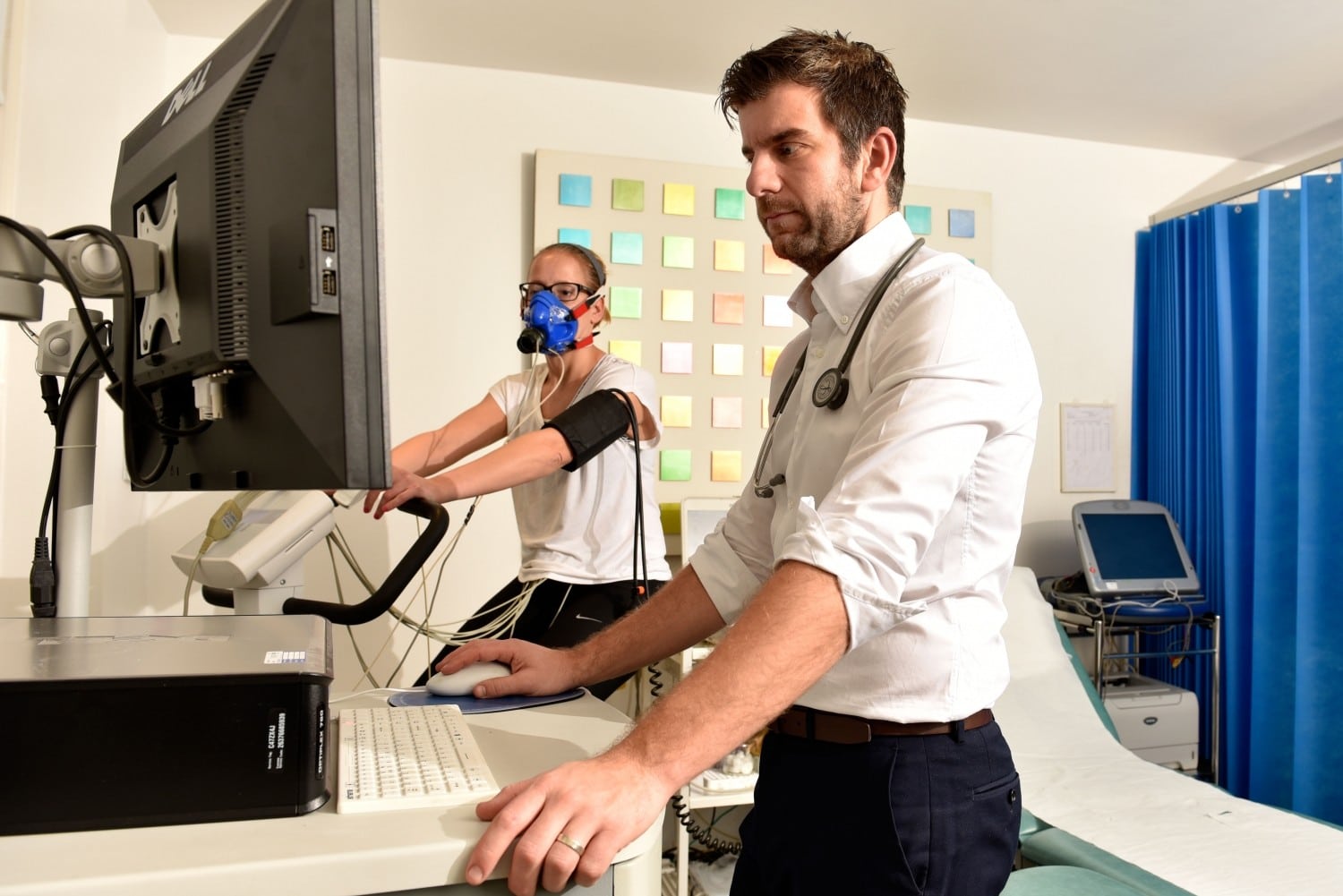Learn what myocardial perfusion scanning is, why it’s carried out, what the procedure involves, and the next steps once you’ve got your results. Soon, you’ll have the answers you need to start getting the quality of your life back.
What is a myocardial perfusion scan?
Myocardial Perfusion Scanning (MPS) is used to evaluate coronary artery disease. The scan uses a small amount of radioactive substance (thallium or technetium) which can be used to produce pictures of your heart. The test is split into 2 parts: ‘stress’ and ‘rest’.
What is the scan used for?
Your cardiologist will use a myocardial perfusion scan to identify signs of Coronary Artery Disease (CAD) – specifically obstruction – as well as any possible heart attack damage.
How is the scan performed?
When the tracer is injected into the bloodstream, it travels to the heart muscle through the coronary arteries. The process can be visualised by a special camera. The test provides a similar value to the Dobutamine Stress Echocardiogram (DSE), and has better sensitivity and specificity than an Exercise Treadmill Test (ETT).
What happens during an MPS scan?
This procedure is undertaken at the Wellington Hospital and is carried out in just a few simple steps.
- First, we start off with the ‘stress’ part of the test. You will be asked to walk on a treadmill to ‘stress’ your heart (or if you are unable to do so we will give you Dobutamine to help accelerate the heart and simulate exercise).
- Your heart rhythm will be monitored with an ECG and your blood pressure will be recorded several times. The tracer will be injected through a vein approximately 1 minute before you stop exercising.
- You will then be asked to lie flat on an imaging table whilst a special camera circles slowly around your chest for about 30 minutes.
- Now for the ‘rest’ part of the test. You will be asked to stay in the department and not to exercise for 4 hours. The test will then be repeated as you rest (no exercise).
What happens after the scan?
Your images will be analysed and the results forwarded to your consultant cardiologist. If large areas of heart disease are found, you will likely need a Coronary Angiogram.
Pricing
Insurance
Myocardial perfusion scans are covered by most private medical insurance policies, but please contact your insurance company prior to your appointment to obtain your pre-authorisation code.
Self-funding
Our price list is available on request and is on display in our waiting area. For an estimation of costs please get in touch.
How do I book the scan?
Either give us a call, e-mail or fill out our simple contact form to arrange your consultation with London’s top cardiologist specialists. You’ll soon have the answers you need to start enjoying life again.
Why choose London Cardiovascular Clinic?
- We offer a patient-centred approach, so you’ll feel looked after and have all your questions answered
- Choose from our flexible appointment times and get seen at your convenience
- Personalised treatment plans
- Get consultancy & treatment from London’s top cardiologists – each with their own special interests
- You’ll experience a much more welcoming and relaxing experience at our private clinic than you would elsewhere
- Video resources to help you further understand your condition and the procedures involved



